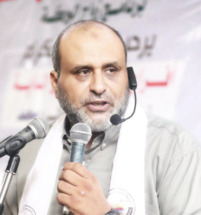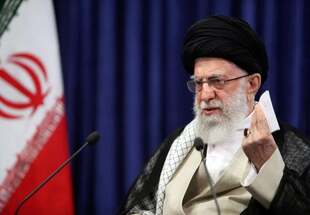-
Pupils without laptops can still go to school in England lockdown

Guidance says children who lack devices are ‘vulnerable’ and can continue to attend in-person teaching
Pupils in England who have no access to laptops are designated as “vulnerable children”, the Department for Education has said, meaning they can continue to turn up at school for face-to-face learning during lockdown.
The DfE guidance raises questions about whether schools will have the capacity to teach the more than a million children who fall into this category, when they have been told to restrict teaching for at least six weeks as part of efforts to control surging coronavirus cases.
It also came as a surprise to the children’s commissioner, Anne Longfield, who learned of the guidance after she had called for pupils to be designated vulnerable if remote learning equipment could not be provided to them. Sources at Longfield’s office questioned why the DfE had made no effort to publicise it.
In comments earlier on Tuesday, Longfield had said: “Those children who haven’t got the tech should be offered a priority place in school from Monday.” She also called on companies to provide free data capacity for children and families at a time of “emergency”.
A few hours later, a DfE spokesperson said students who do not have a device could continue to attend school, pointing to a page on the gov.uk website that said such children were classified as vulnerable.
When asked when that guidance was published, the DfE spokesperson said they would not able to able to establish that until the following day. On Wednesday, the spokesperson said the guidance had been in place since September.
About 9% of children in the UK – between 1.1 million and 1.8 million – do not have access to a laptop, desktop or tablet at home, according to Ofcom. More than 880,000 of them live in a household with only a mobile internet connection.
Three UK, which has an 11% market share of mobile subscriptions in the UK, said on Tuesday that it would provide unlimited data upgrades to disadvantaged schoolchildren in England until the end of the school year in July, amid pressure on others to do the same.
The digital divide in England hits poorer pupils hardest, with research by the educational charity Teach First suggesting four of five schools with the poorest pupils do not have enough devices and internet access to ensure all those self-isolating can keep learning.Russell Hobby, CEO of Teach First, said: “Access to high-quality education has always been unequal. But whilst trying to learn from home, the gap between children from wealthier homes and their poorer peers is greatly exacerbated.”
More than 560,000 devices were delivered to schools and councils last year, according to the DfE. It announced before Christmas that it had bought 440,000 more.
Nevertheless, schools such as St Ambrose Barlow Roman Catholic high school in Salford are still struggling. It said it had so far received just 75 laptops for a school of more than 1,000 pupils, where at least 40% don’t have their own device. “Very few of our pupils have no devices at all at home, but you often have families of five with one laptop and everybody needing to get online,” said the school’s head, Ben Davis.
To plug the gap, the school has prioritised year 11 pupils, and gave out “30 or 40” laptops to that cohort on Tuesday. But the autumn term was a struggle, with 56% of pupils off self-isolating at some point during the new school year.
In Oldham, a headteacher said pupils with no broadband at home during the first lockdown last year rode trams all day to make use of free wifi. Glyn Potts, head of Newman Roman Catholic college in Oldham, added that his school had this week received 138 laptops from the central government scheme to add to the 34 they received last year – nine months after making the original request for 237.
There were reports elsewhere of 13-year-old pupils submitting schoolwork at midnight because that was the only time they could use the sole computer or smartphone in their home, according to Claire Garside, of the Leeds-based volunteer group Digital Access West Yorkshire.
“Every headteacher has told us they’re short of devices. Due to the DfE criteria, headteachers applied for these devices knowing that it wasn’t going to be enough for the children that they know need access,” said Garside.
Aside from the shortage of hardware, ministers and telecoms companies faced calls to remove punitive mobile data costs. BCS, the chartered institute for IT professionals, said the Department for Digital, Culture, Media and Sport (DCMS) should negotiate with mobile data providers to apply a “zero-rating” for educational websites in the same way they apply to online NHS resources.
“Many low-income families rely on mobile data for internet access, and the average data allowance is much lower. Schools would need to confirm details of the sites they need, but these can be agreed and refined over time,” said Adam Leon Smith, chair of BCS.
The DfE drew criticism by posting a photo on Instagram of a warehouse containing some of the 50,000 laptops and tablets due to have been delivered to schools this week.
Siobhain McDonagh, the Labour MP who coordinated a letter in which MPs, unions and charities called on Boris Johnson to take action to help “children on the wrong side of the digital divide”, said of the photo: “It beggars belief that the government would celebrate distributing devices almost a year after schools first closed and to just a fraction of the pupils who need them.”
source: Josh Halliday
Levant
You May Also Like
Popular Posts
Caricature
BENEFIT Sponsors BuildHer...
- April 23, 2025
BENEFIT, the Kingdom’s innovator and leading company in Fintech and electronic financial transactions service, has sponsored the BuildHer CityHack 2025 Hackathon, a two-day event spearheaded by the College of Engineering and Technology at the Royal University for Women (RUW).
Aimed at secondary school students, the event brought together a distinguished group of academic professionals and technology experts to mentor and inspire young participants.
More than 100 high school students from across the Kingdom of Bahrain took part in the hackathon, which featured an intensive programme of training workshops and hands-on sessions. These activities were tailored to enhance participants’ critical thinking, collaborative problem-solving, and team-building capabilities, while also encouraging the development of practical and sustainable solutions to contemporary challenges using modern technological tools.
BENEFIT’s Chief Executive Mr. Abdulwahed AlJanahi, commented: “Our support for this educational hackathon reflects our long-term strategic vision to nurture the talents of emerging national youth and empower the next generation of accomplished female leaders in technology. By fostering creativity and innovation, we aim to contribute meaningfully to Bahrain’s comprehensive development goals and align with the aspirations outlined in the Kingdom’s Vision 2030—an ambition in which BENEFIT plays a central role.”
Professor Riyadh Yousif Hamzah, President of the Royal University for Women, commented: “This initiative reflects our commitment to advancing women in STEM fields. We're cultivating a generation of creative, solution-driven female leaders who will drive national development. Our partnership with BENEFIT exemplifies the powerful synergy between academia and private sector in supporting educational innovation.”
Hanan Abdulla Hasan, Senior Manager, PR & Communication at BENEFIT, said: “We are honoured to collaborate with RUW in supporting this remarkable technology-focused event. It highlights our commitment to social responsibility, and our ongoing efforts to enhance the digital and innovation capabilities of young Bahraini women and foster their ability to harness technological tools in the service of a smarter, more sustainable future.”
For his part, Dr. Humam ElAgha, Acting Dean of the College of Engineering and Technology at the University, said: “BuildHer CityHack 2025 embodies our hands-on approach to education. By tackling real-world problems through creative thinking and sustainable solutions, we're preparing women to thrive in the knowledge economy – a cornerstone of the University's vision.”
opinion
Report
ads
Newsletter
Subscribe to our mailing list to get the new updates!






















